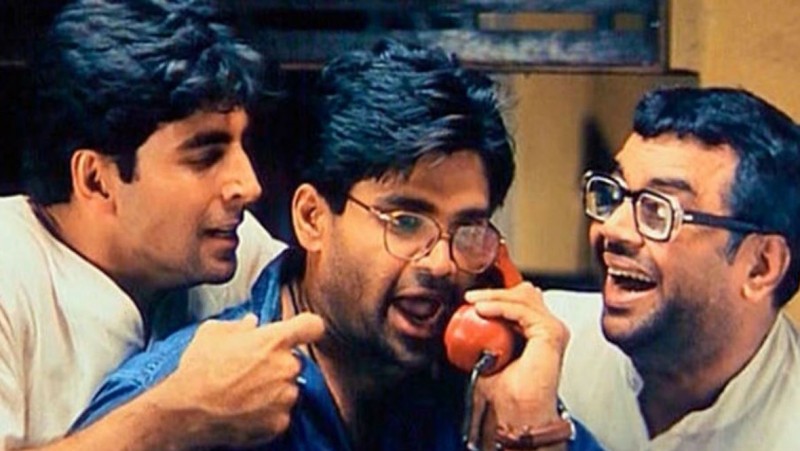
Introduction
Comedy is a versatile art form that thrives on creativity, timing, and the ability to think on one's feet. One of the key elements that can take comedy to new heights is improvisation. Improvisation adds an element of spontaneity and unpredictability that keeps audiences engaged and entertained. In this article, we will explore the techniques used in improvisation and highlight some famous improvisers who have mastered this art.
Understanding Improvisation in Comedy
Improvisation is the act of creating or performing something spontaneously without prior preparation or planning. In comedy, it involves coming up with jokes, dialogues, and comedic situations on the spot. The essence of improvisation lies in reacting to unexpected circumstances and building upon them to generate humor. It requires quick thinking, adaptability, and the ability to work collaboratively with other performers.
Importance of Improvisation in Comedy
Improvisation plays a vital role in comedy for several reasons. Firstly, it adds an element of surprise and unpredictability, keeping the audience engaged and on their toes. It allows comedians to explore new comedic territory, pushing the boundaries of their routines and delivering unique performances. Moreover, improvisation fosters creativity and spontaneity, enabling comedians to tap into their comedic instincts and generate fresh material.
Techniques for Successful Improvisation
Active Listening: Improvisation requires actively listening to your fellow performers, as it provides cues and inspiration for comedic responses.
"Yes, and..." Rule: Embracing the "yes, and..." rule means accepting the ideas presented by others and building upon them, rather than shutting them down.
Building on Ideas: Successful improvisation involves taking an initial idea or premise and expanding upon it to create comedic moments and narratives.
Embracing Mistakes: Mistakes are opportunities in improvisation. Embracing them allows comedians to turn mishaps into comedic gold.
Creating Strong Characters: Developing unique and memorable characters adds depth and comedic potential to improvisational performances.
Famous Improvisers and Their Contributions
Tina Fey: Renowned for her work on "Saturday Night Live" and "30 Rock," Fey's improvisational skills have earned her critical acclaim. Her ability to seamlessly integrate improvisation into scripted comedy showcases her versatility as a performer.
Will Ferrell: Known for his hilarious characters and off-the-cuff comedic style, Ferrell's improvisation skills have brought laughter to audiences worldwide. His iconic performances in films like "Anchorman" and "Talladega Nights" demonstrate his improvisational prowess.
Amy Poehler: Poehler's improvisational talents shine through her work on "Saturday Night Live" and the improvisational comedy show "Parks and Recreation." Her quick wit and ability to think on her feet make her a comedic force to be reckoned with.
Robin Williams: The late Robin Williams was a master of improvisation, known for his lightning-fast wit and unparalleled comedic timing. His improvised moments in films like "Good Morning, Vietnam" and "Mrs. Doubtfire" are legendary and showcase his extraordinary talent.
Benefits of Improvisation in Comedy
Engaging in improvisation offers several benefits to comedians:
Enhances Creativity and Spontaneity: Improvisation encourages comedians to think outside the box, fostering creativity and the ability to generate unique comedic material spontaneously.
Develops Collaborative Skills: Improvisational comedy is often performed in groups, requiring teamwork, trust, and the ability to build upon each other's ideas.
Improves Adaptability and Quick Thinking: By practicing improvisation, comedians develop the ability to adapt to unexpected situations and think quickly on their feet, making them more versatile performers.
How to Practice Improvisation
Joining Improv Groups: Joining improv groups provides opportunities to practice improvisation regularly and collaborate with other like-minded comedians.
Taking Improv Classes: Enrolling in improv classes helps comedians develop fundamental skills, learn different techniques, and receive constructive feedback from experienced instructors.
Engaging in Improv Exercises: Regularly participating in improv exercises, such as word association games and scene-building activities, sharpens improvisational skills and keeps comedians in top comedic form.
The Impact of Improvisation on Stand-up Comedy
Incorporating improvisation into stand-up comedy routines can have a significant impact on the overall performance. It allows comedians to interact with the audience, adapt their jokes on the spot, and create memorable moments unique to each show. The spontaneity and unpredictability of improvisation add a fresh and engaging element to stand-up comedy, enhancing the overall experience for both the comedian and the audience.
Conclusion
The art of improvisation in comedy is a skill that requires quick thinking, adaptability, and the ability to work collaboratively. It adds an element of surprise and freshness to comedic performances, keeping audiences engaged and entertained. Famous improvisers like Tina Fey, Will Ferrell, Amy Poehler, and Robin Williams have demonstrated the power of improvisation in their comedic careers. By practicing the techniques of active listening, building on ideas, and embracing mistakes, comedians can enhance their improvisational skills and take their comedy to new heights.
Exploring the World of Virtual Reality Entertainment and Its Potential
The Role of Technology in the Future of Live Performances and Concerts
The rise of online gaming and its influence on the entertainment landscape